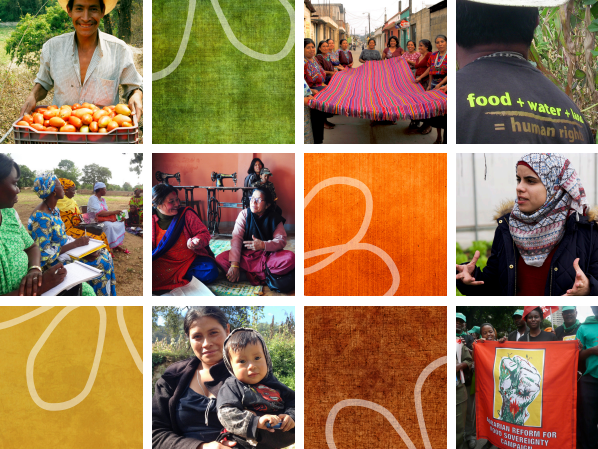
Soil to Sky: Climate Solutions That Work uplifts the solutions that have too often been excluded from climate philanthropy, yet have great potential for scaled impact on the most urgent crisis of our time.
Soil to Sky: Climate Solutions That Work powerfully affirms that funders who have traditionally invested in top-down strategies to the climate crisis can also make lasting, effective, and scalable investments in grassroots-driven responses. It brings together the best available research to demonstrate how blending traditional and local knowledge with advocacy and alliance building can create lasting change to cool the planet and build equity and rights-based resilience for the long term.
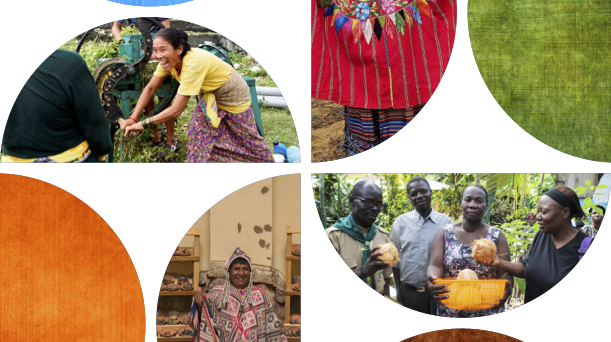
Soil to Sky: Climate Solutions That Transform connects the dots between specific stories of change and global impact, demonstrating how grassroots movements are already forging transitions from extractive agriculture and energy production to agroecological systems and equitable energy generation.
Three years after the release of our acclaimed report Soil to Sky: Climate Solutions That Work, this edition provides further evidence that grassroots movements are best positioned to shift the global food and energy sectors from the dominant extractive models to regenerative ones.
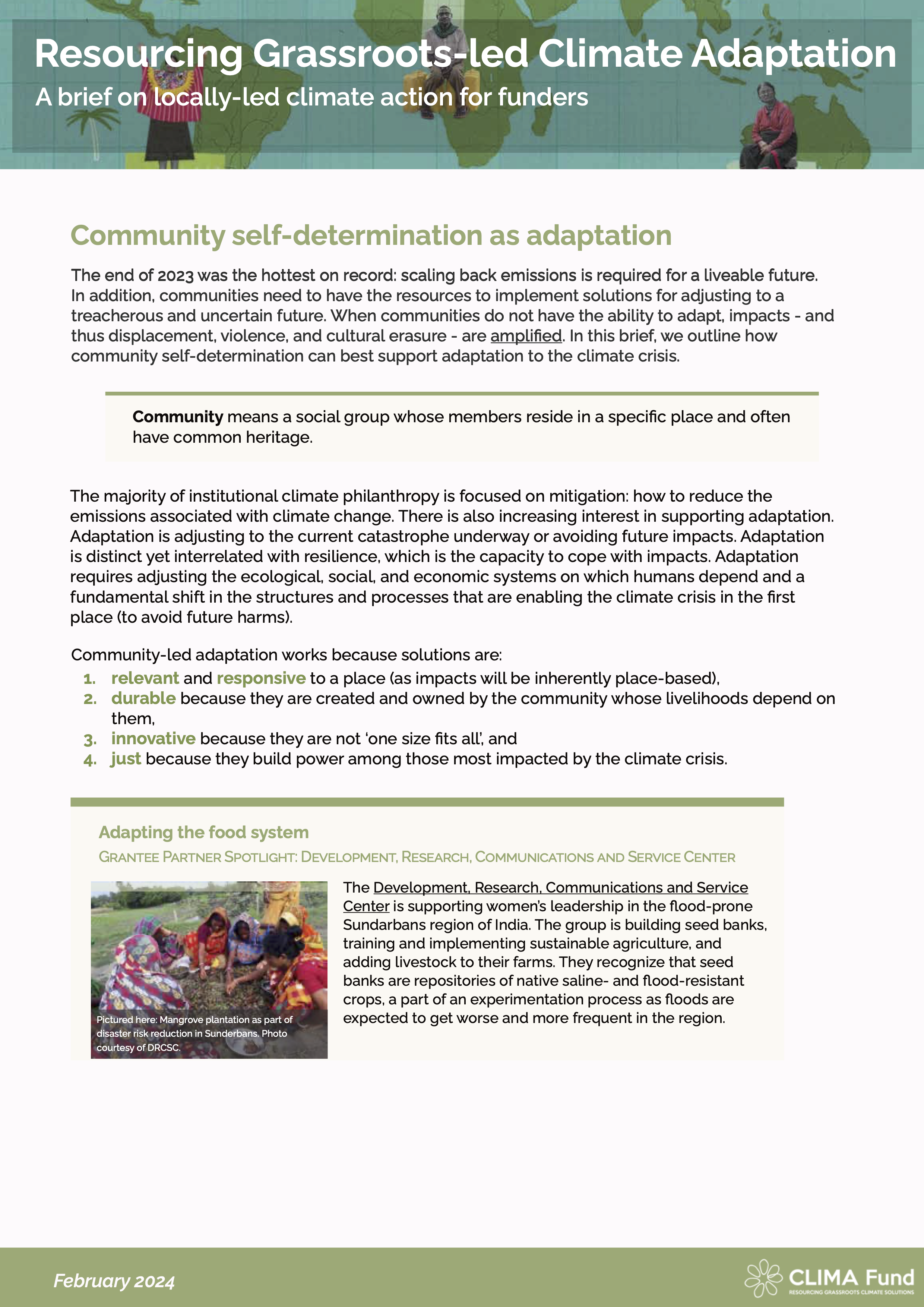
A brief on locally-led climate action for funders
The end of 2023 was the hottest on record: scaling back emissions is required for a liveable future. In addition, communities need to have the resources to implement solutions for adjusting to a treacherous and uncertain future. When communities do not have the ability to adapt, impacts – and thus displacement, violence, and cultural erasure – are amplified. In this brief, we outline how community self-determination can best support adaptation to the climate crisis.
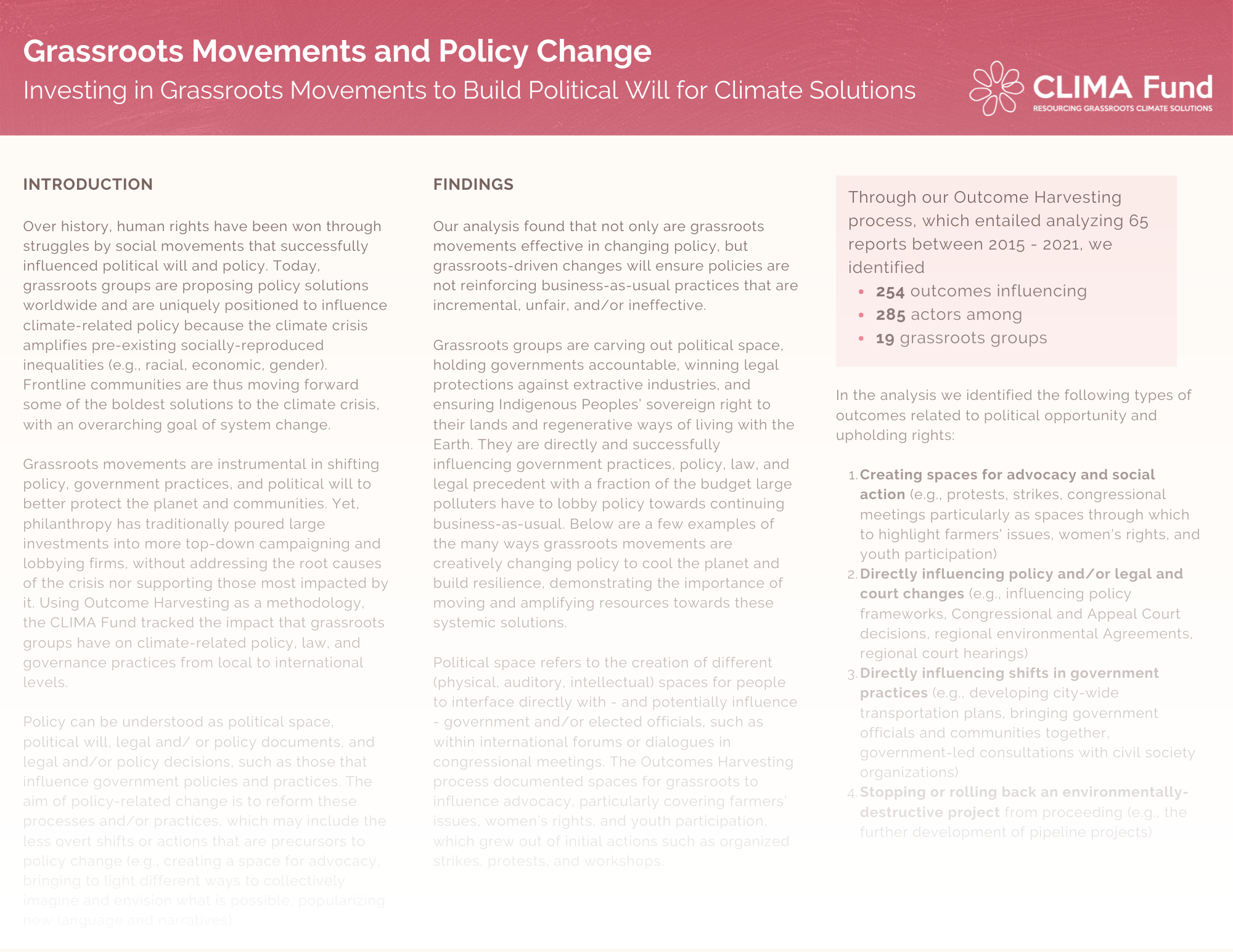
Grassroots movements are transforming the landscape of climate solutions globally, addressing the multiplicity of root causes and effects of the climate crisis in lasting ways.
As part of our learning and evaluation process, we employed an Outcome Harvesting methodology to learn how our grassroots movement partners are advancing systemic and policy change to address the climate crisis. We analyzed 65 grant reports from 19 of our grassroots partners between 2015 – 2021 and identified 254 outcomes (social and political changes) influencing 285 actors.
Read now to learn how grassroots movements advance policy change and build political will for implementing climate solutions. Grassroots movements are doing this by creating spaces for advocacy and social action, directly influencing policy and/or legal and court changes, influencing shifts in government practices, and stopping or rolling back environmentally destructive projects.
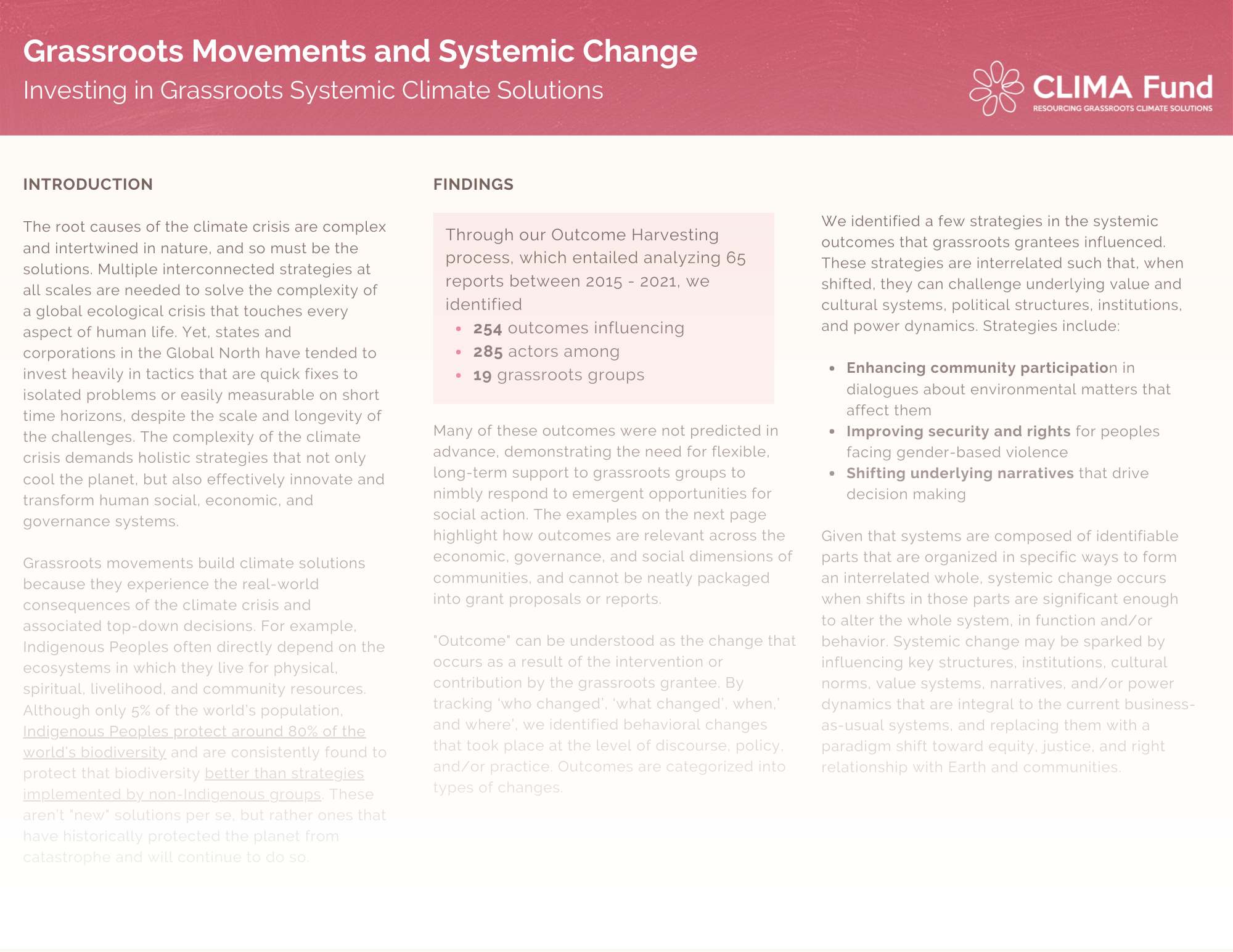
Read now to learn how grassroots movements advance systemic change by enhancing community participation, improving security and rights, and shifting underlying narratives that drive decision-making.

We released our impact report on our five-year anniversary of supporting grassroots climate justice movements worldwide. The CLIMA Fund was created to provide an efficient and effective vehicle for funders and donors to invest in growing grassroots climate solutions. We collaboratively support movement ecosystems led by women, Indigenous Peoples, youth, and small-scale farmers.
The four CLIMA Fund member organizations have given over 18,000 grants over a collective 120+ years of grassroots grantmaking. In the last five years, the CLIMA Fund has made 300+ grants to grassroots groups in 71 countries.
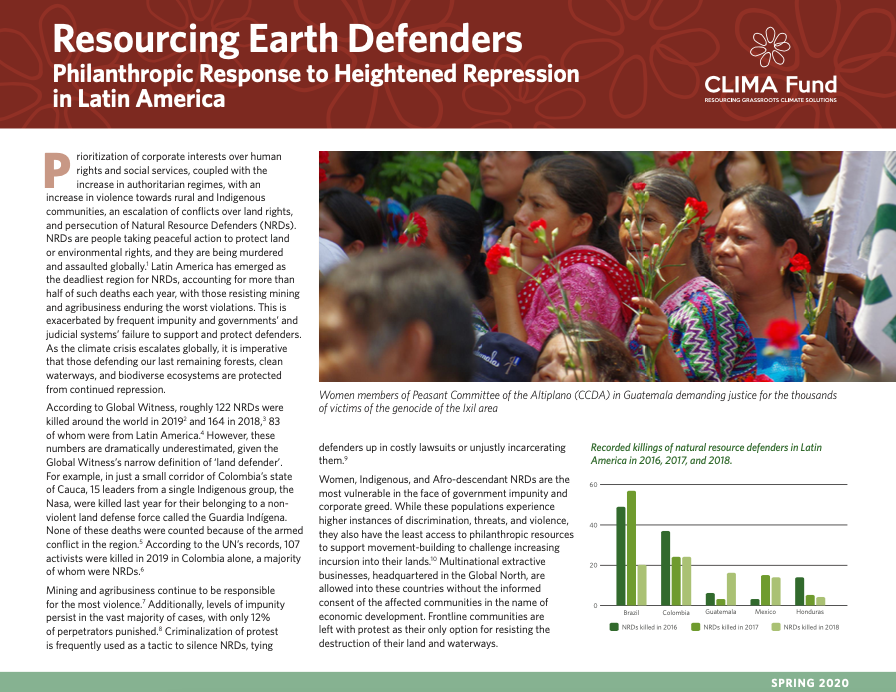
Resourcing Earth Defenders draws on the practical experience of grassroots activists and philanthropists to map the state of the increasing violence against Natural Resource Defenders in Latin America and philanthropy’s response. With the escalation of resource extraction, authoritarian governments, and land grabbing globally, it is critical that funders respond by providing more flexible, holistic support to Earth Defenders.
Philanthropic support in Latin America trends toward short-term, project-based funding or rapid response after a threat has occurred. This report suggests that philanthropy could focus on funding for movements in order to more effectively support natural resource defenders experiencing increasing repression across Latin America. This would include a combination of rapid response, long-term support, and seed funding for movement organizations.
Resourcing Earth Defenders recommends shifting support from a crisis-centered approach to a movement-building one.
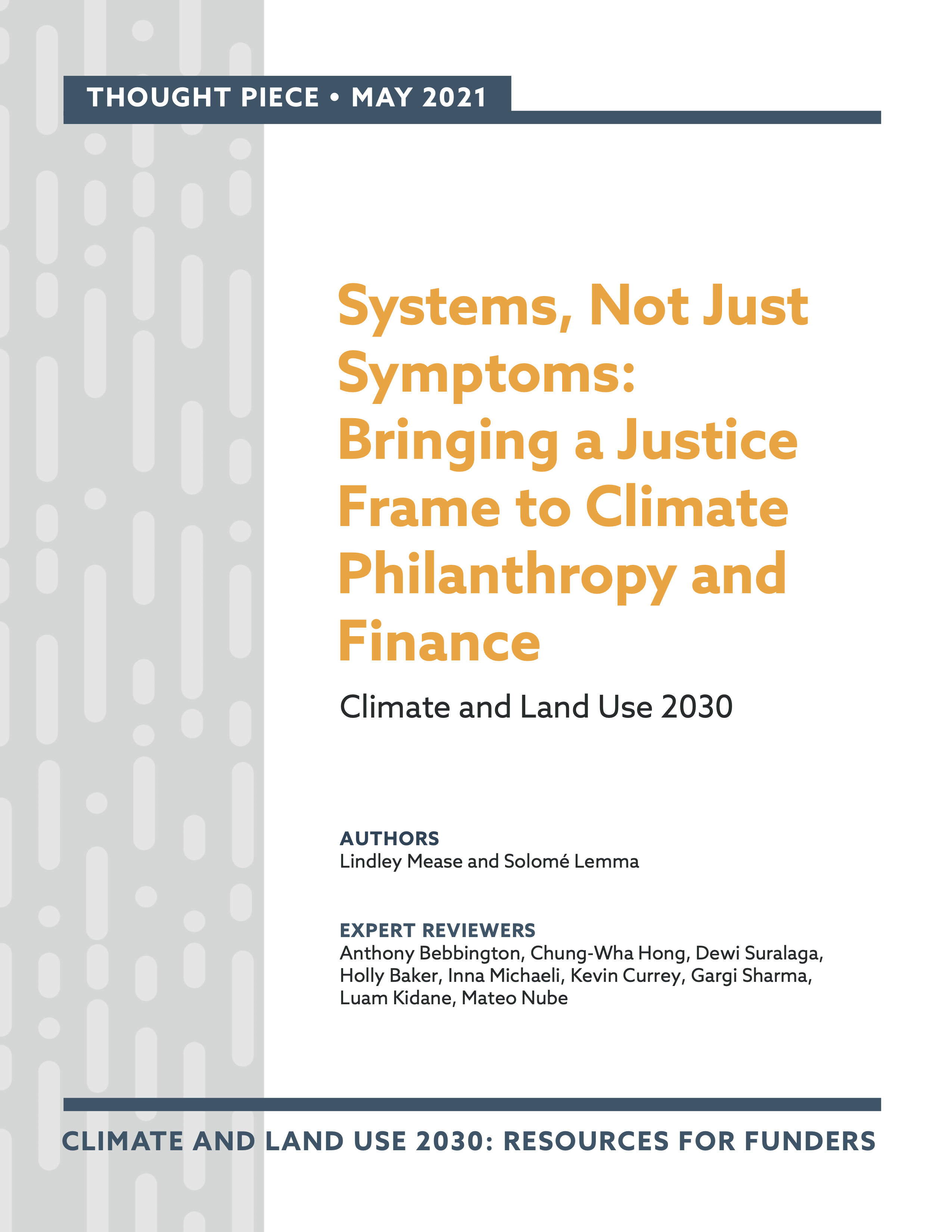
Systems, Not Just Symptoms proposes that an equity and justice lens is necessary to meet the scale of the climate crisis with effective and transformative solutions. Responding to the crisis will require tackling its root causes while adapting to its symptoms.
Lindley Mease and Solomé Lemma explore definitions of climate justice and grassroots, the root causes of the climate crisis, the ways in which frontline communities and grassroots movements are tackling this existential challenge with scalable solutions, and offer recommendations for how funders can better align their funding strategies with powerful solutions.